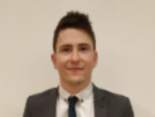-
Courses

Courses
Choosing a course is one of the most important decisions you'll ever make! View our courses and see what our students and lecturers have to say about the courses you are interested in at the links below.
-
University Life

University Life
Each year more than 4,000 choose University of Galway as their University of choice. Find out what life at University of Galway is all about here.
-
About University of Galway

About University of Galway
Since 1845, University of Galway has been sharing the highest quality teaching and research with Ireland and the world. Find out what makes our University so special – from our distinguished history to the latest news and campus developments.
-
Colleges & Schools

Colleges & Schools
University of Galway has earned international recognition as a research-led university with a commitment to top quality teaching across a range of key areas of expertise.
-
Research & Innovation

Research & Innovation
University of Galway’s vibrant research community take on some of the most pressing challenges of our times.
-
Business & Industry

Guiding Breakthrough Research at University of Galway
We explore and facilitate commercial opportunities for the research community at University of Galway, as well as facilitating industry partnership.
-
Alumni & Friends

Alumni & Friends
There are 128,000 University of Galway alumni worldwide. Stay connected to your alumni community! Join our social networks and update your details online.
-
Community Engagement

Community Engagement
At University of Galway, we believe that the best learning takes place when you apply what you learn in a real world context. That's why many of our courses include work placements or community projects.
Meet Our Researchers
Meet Our Researchers
Tom is a Lecturer in Neuropsychology at the University of Galway, and Senior Clinical Neuropsychologist at University Hospital Galway. Tom received his PhD in Neuropsychology at Trinity College Dublin in 2016, after completing his BSc and MPsychSc in Psychology. He then completed his Clinical Psychology doctoral training at University College Dublin in 2019, where he currently holds an adjunct associate professorship. For his PhD research, Tom was awarded the PSI Division of Neuropsychology’s Deirdre McMackin Memorial; and for his Clinical PhD was awarded UCD’s Clinical Psychology Medal. Tom’s research interests relate to the cognitive neuropsychology and clinical neuroscience of movement disorders, psychiatric conditions, and neurodegenerative conditions, with particular interest in social cognition, using clinical, cognitive, neurophysiology and neuroimaging methodologies.
 Dr Maeve Dwan-O'Reilly, Postdoctoral Researcher
Dr Maeve Dwan-O'Reilly, Postdoctoral Researcher
Maeve has been a postdoctoral researcher with the PSYcHE programme since January 2024. Maeve completed her PhD in University College Dublin in collaboration with Jigsaw, the National Centre for Youth Mental Health. Maeve’s PhD explored the role of secondary school staff in supporting and promoting youth mental health, with a particular focus on Jigsaw’s whole school mental health literacy initiative, One Good School. Maeve also has a background in teaching having trained as an English and religion secondary school teacher and having worked for many years as an ESL teacher.
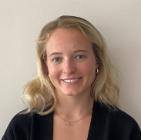 Emily Barrett, Research Assistant
Emily Barrett, Research Assistant
Emily is a Research Assistant on the ‘SOCIAbLE’ project, which investigates a VR-based intervention to improve social cognition in adults who have experienced early life adversity. Emily graduated with a BA in Denominated Psychology from the University of Galway in 2021 and completed her MSc in Clinical Health Psychology at Queen’s University Belfast in 2023. Emily previously worked as a support worker with the Brothers of Charity, supporting children and young people with intellectual disabilities and comorbidities. She volunteers as a support worker with Bodywhys, the Eating Disorder Association of Ireland. Emily’s research interests include the cognitive and clinical aspects of childhood trauma, mood disorders, eating disorders, and neurodegenerative diseases, with a focus on developing and evaluating interventions to improve psychosocial functioning.
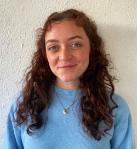 Sophie Harrington, Research Assistant
Sophie Harrington, Research Assistant
Sophie received her BA in Denominated Psychology (International) with a year spent in Padova. She completed her MSc in Clinical Neuroscience at the University of Galway. In her spare time, she is also a crisis volunteer for Text About It, a National Action Panel member for spunout, and has worked in collaboration with UCD on research surrounding the My World Survey 3. She has previously worked as a Teaching Assistant in Psychology and as a Care Assistant for the Brothers of Charity Services, supporting children with intellectual disabilities and complex medical needs. Her main interests lie in youth mental health, digital mental health services, sleep disorders, and improving the implementation of CAMHS services for young people.
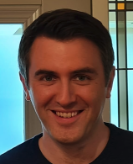 Cathal Ó Curraoin, Research Assistant
Cathal Ó Curraoin, Research Assistant
Cathal is a research assistant on the SOCIABLE project, which aims to identify whether a Virtual Reality-based intervention can help improve social cognition in adults who have had adverse childhood experiences. Cathal previously worked on the iRelate project which examined the impact of genes, early life experiences and the immune system on the brain. As part of his H Dip in Psychology, Cathal carried out a study of childhood trauma and psychological distress in young adults. Cathal has a background in accountancy and worked as a lecturer for many years in the University of Galway.
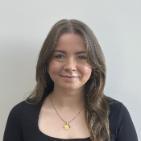 Anna O'Mahony Sinnott, Research Assistant
Anna O'Mahony Sinnott, Research Assistant
Anna received her BA in Psychological Studies and Social and Political Science, and her HDip in Psychology (Conversion) from the University of Galway. She then went on to complete the MSc in Clinical Neuroscience degree from the University of Galway in 2023. Anna was a moderator and mental health worker for online organisation Turn2Me.ie for three years, working with adults and young people aged 12+. In 2024, Anna took up the post as Assistant Psychologist/Research Assistant in the University of Galway’s Student Counselling and Wellbeing Service, and the School of Psychology. Anna’s previous research has focused on social cognition, and the role of microstructural connectivity of white matter tracts in schizophrenia. Her primary interests are in understanding the etiology and neural basis of mental health disorders, examining social cognition and functioning, and the development of novel mental health interventions and therapies.
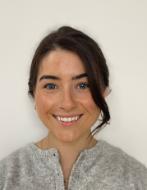 Sophie Mahon, Research Assistant
Sophie Mahon, Research Assistant
Sophie received her BA in Psychological Studies and Criminology and her HDip in Psychology (conversion) from Maynooth University. She then completed the MSc in Health Psychology degree in the University of Galway. Sophie worked with the outpatient team in St James’s Hospital in Dublin, delivering therapies and support to adults facing various mental health challenges. Her primary interests lie in the intricate dynamics of childhood development, the profound effects of trauma, and how these factors can influence both physical and mental health throughout an individual's life. She is particularly passionate about understanding how early experiences shape psychological resilience and vulnerability, and she seeks to explore effective interventions and support strategies to mitigate long-term impacts.
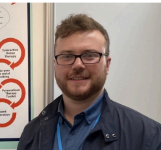 Conor Gavin, Peer Support Worker
Conor Gavin, Peer Support Worker
Conor works as a peer support worker on the MOST platform (Moderated Online Social Therapy) and has lived experience of psychosis. Having completed his Bachelor in Biochemistry in the University of Galway, Conor enrolled in the MSc. Clinical Neuroscience. Conor’s specific research interests lie with psychosis and related disorders ranging from the genetic factors of the condition, environmental factors and also tailored intervention. His masters dissertation focuses on how childhood trauma affects cognition in those with schizophrenia. Conor has also recently published on how stigma relating to schizophrenia presents in the Irish media and hopes to continue researching this issue in future. With an additional passion for writing and poetry, Conor co-founded and directs the Psychosis Arts Collective (PAC) which empowers creatives who have lived experience of psychosis.
Past Researchers
- Dr Emma Frawley
- Megan Cowman
- Christina Gleeson
- Kyra Renaud
- James Lyons
- Emmet Godfrey
- Talissa Walsh
- Nicole Sylver








